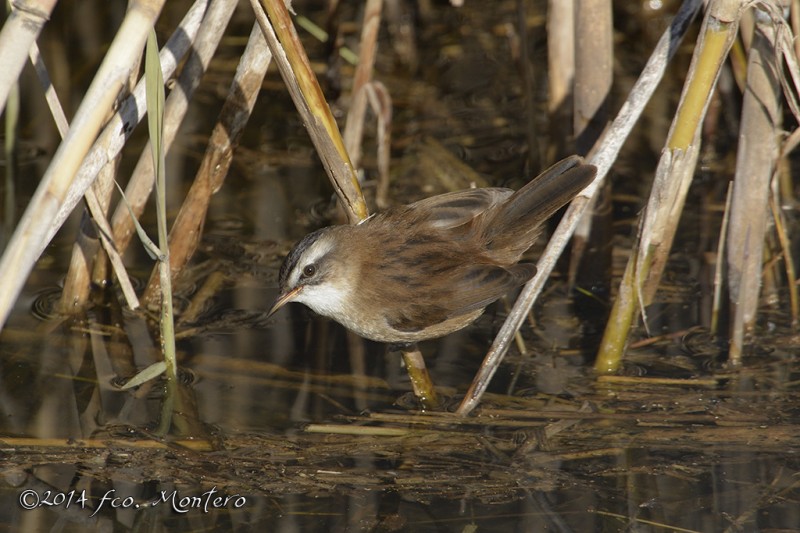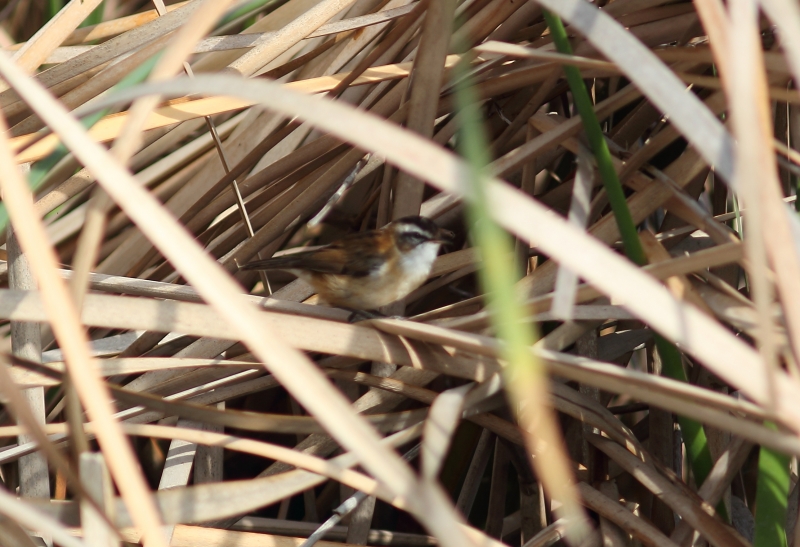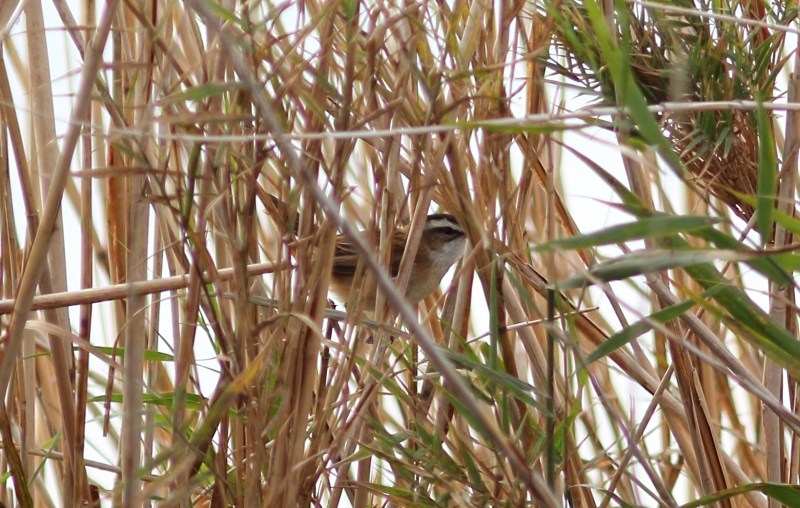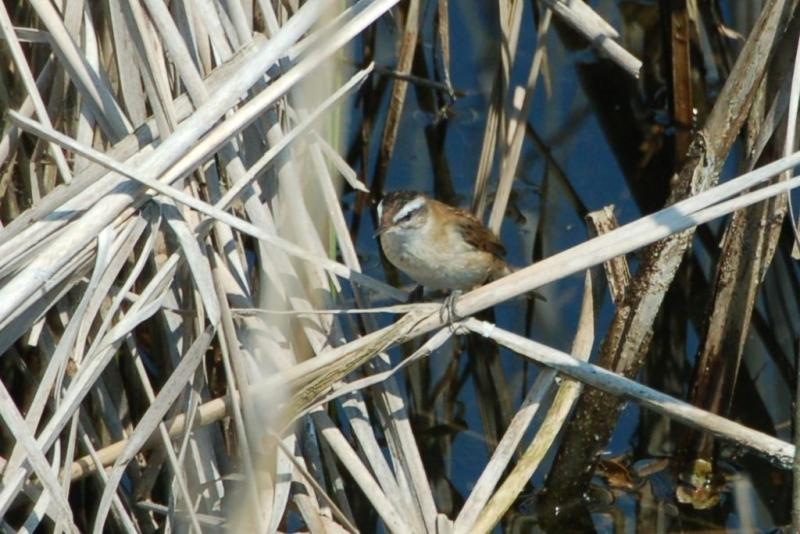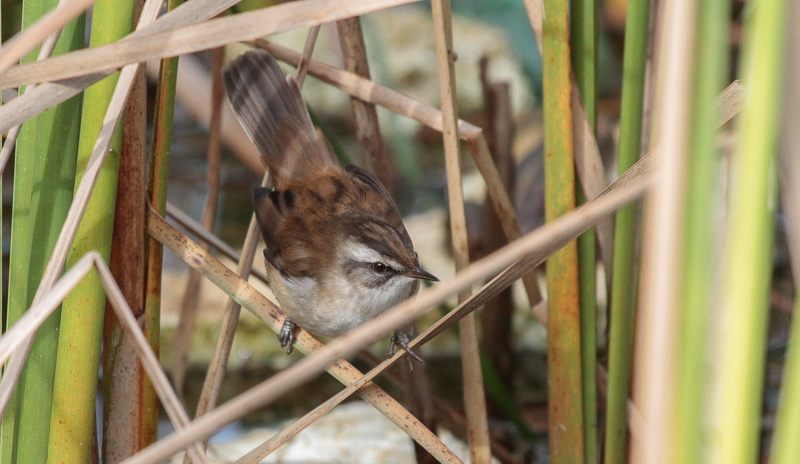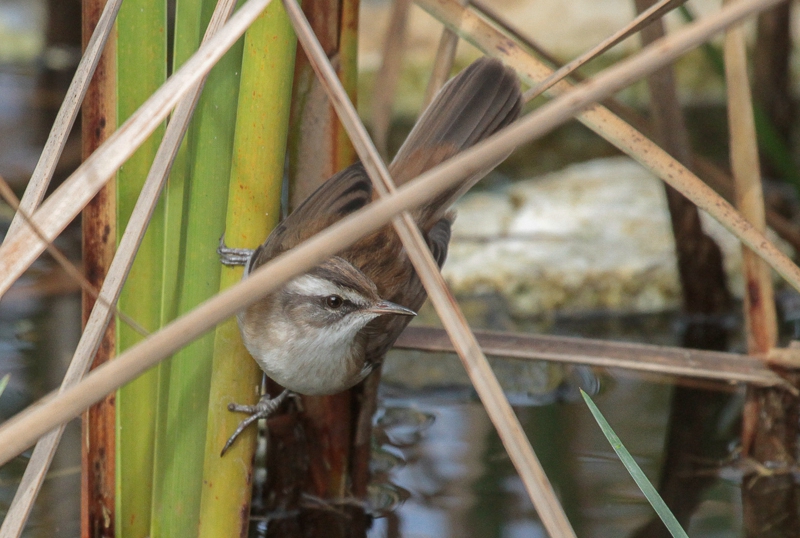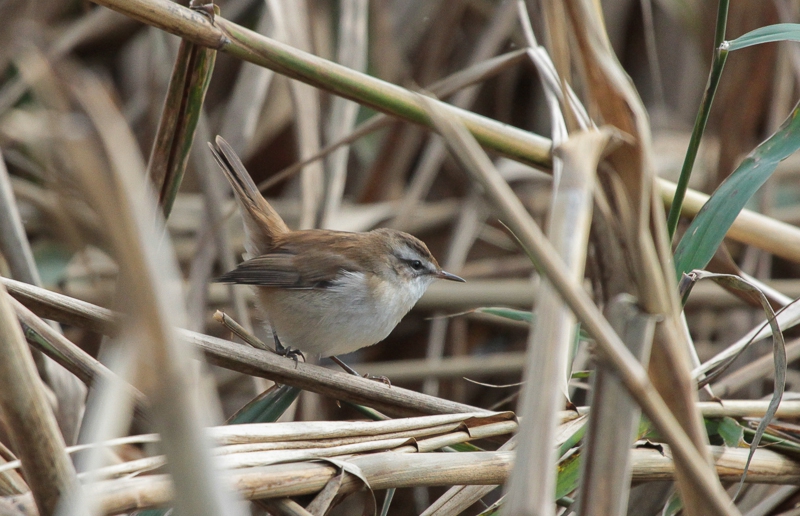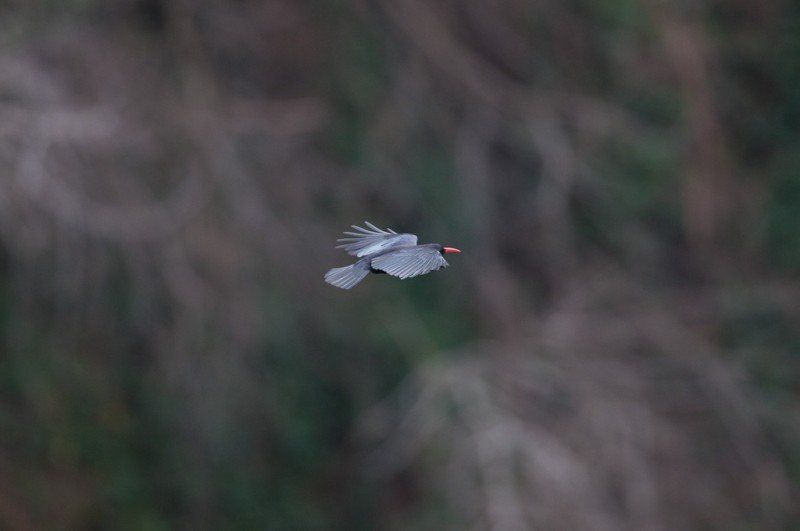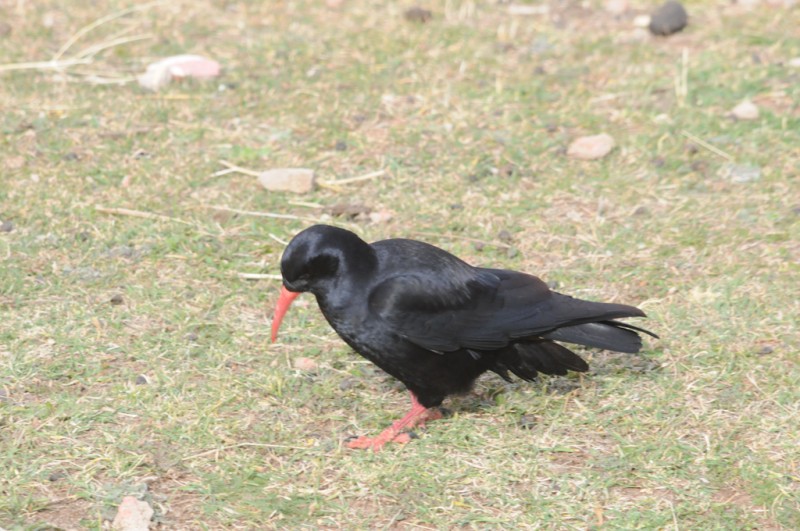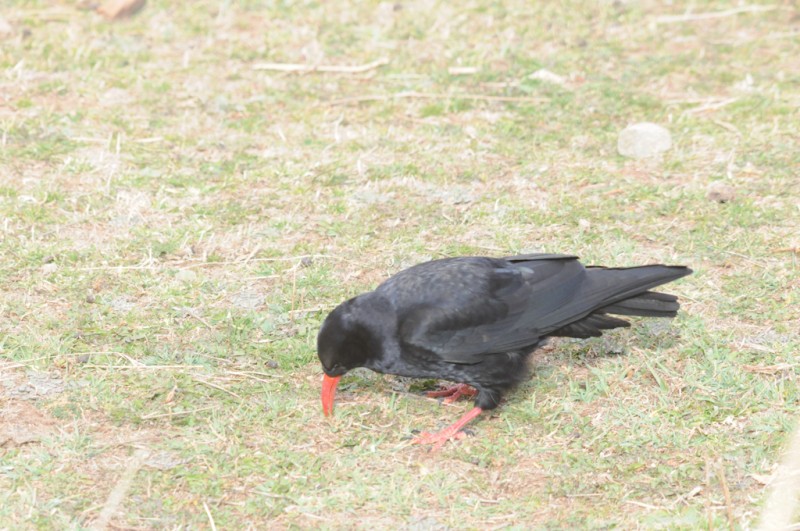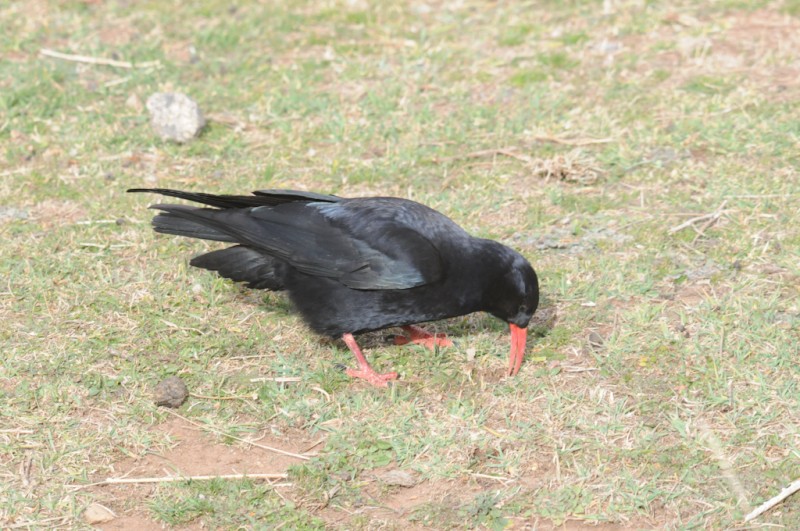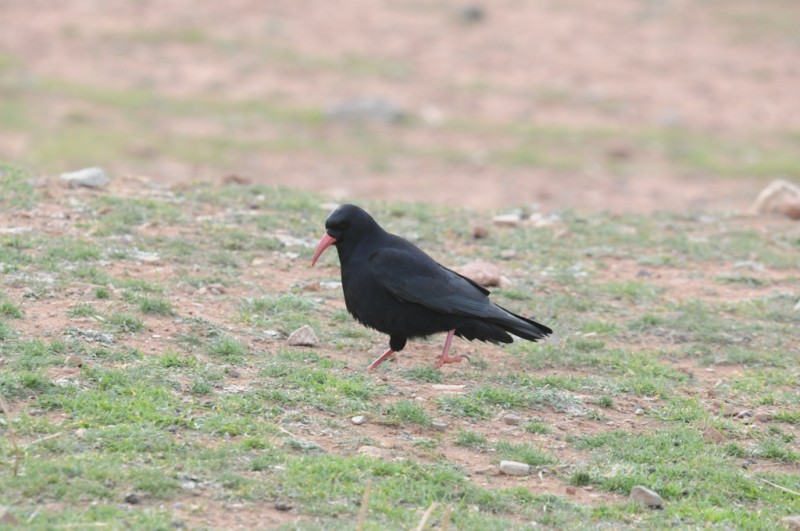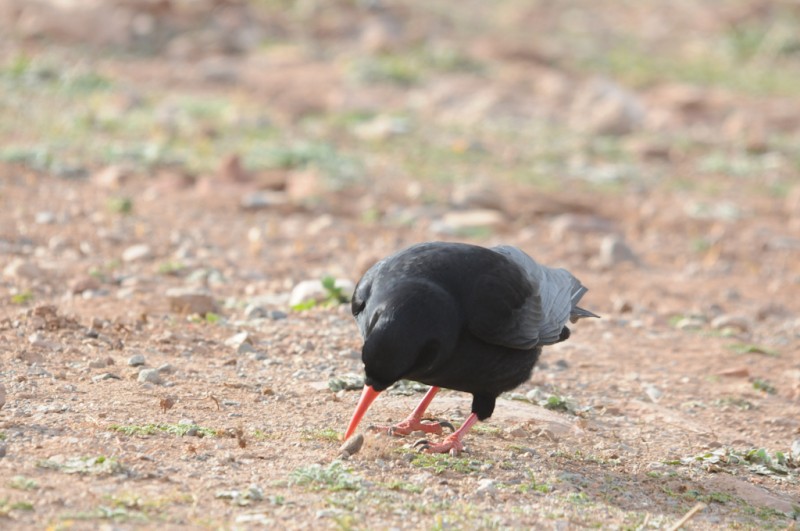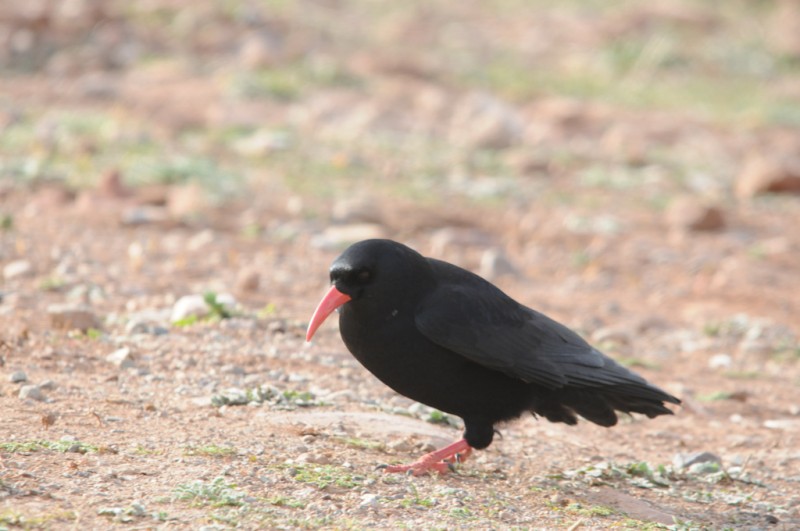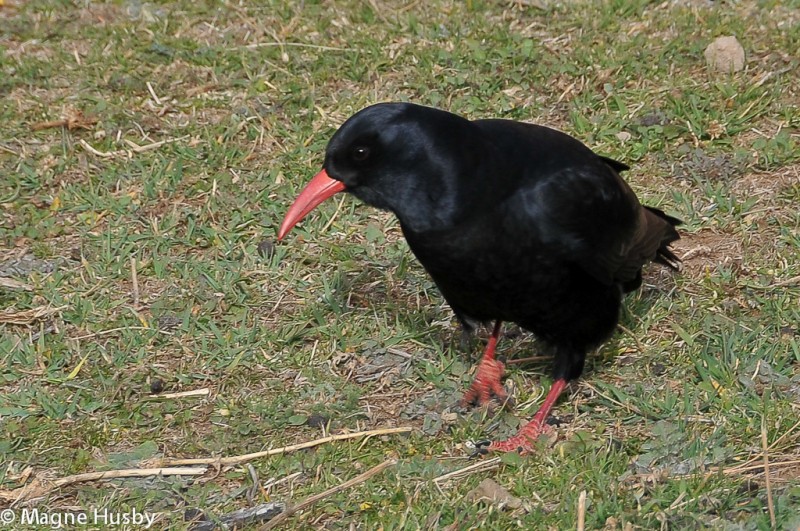Moustached Warbler (Acrocephalus melanopogon)
Red-billed Chough (Pyrrhocorax pyrrhocorax)
Small and restless species easily confused with Sedge Warbler, Acrocephalus schoenobaenus, but showing both plumage and structural differences. Plumage differs from A. schoenobaenus in; broad, white supercilium ending without narrowing, dark crown (usually appears black), pure white throat, grey ear-coverts, dark legs and warm-rufous flanks, rump and neck. Facial markings recalling firecrest. Very short primary projection and longer, more evenly rounded tail recalling Wren when raised. Bill thinner than A. schoenobaenus. Skulky behaviour, forages low in vegetation, on ground or near water surface. Some variation in both size and plumage between western and eastern subspecies.
Sound:Contact call a dry "trrrt", similar to corresponding call of Sedge Warbler. Song most resembling that of Reed Warbler (A, scirpaceus), but often includes diagnostic (unique among congeners), pure-sounding note sequence resembling crescendo of Common Nightingale (L. megarhynchos), before launching into typical Acrocephalus sounding song. This latter type can be sustained for some time without the diagnostic sequence and is more difficult to distinguish from A. scirpaceus. Note faster tempo and more variation.
Diagnostic song:
Distribution:
Xeno-canto: map
Ecology:Birdlife ecology
Links:
Observation.org Latest observations
Image search Flickr NB! May give other species
CCCC-photo:Radovan Václav, Licence,Link.
All black plumage, red legs and long, curved, red bill. Bill of juveniles yellowish-brown and shorter. Though never as pure yellow as in Alpine Chough, and more curved. Easily confused with Alpine Chough at a distance where both species occur, but note broader, more fingered wings, shorter and squarer tail with broader base and different calls. Flight extremely acrobatic.
Sound:Call: A rapidly descending "keeaaaw", sometimes resembling a coarse jackdaw. At other times a more mewing sound, with similar coarseness, or a sharper, descending "kieew". Easily distinguished from the thin, trilling, whistling sounds of Alpine Chough.
Contact call:
Distribution:
Wikipedia: map (se also Xeno-canto below)
Ecology:Birdlife ecology
Links:
Observation.org Latest observations
Image search Flickr NB! May give other species
CC
 English
English Albanian
Albanian
 Armenian
Armenian
 Bulgarian
Bulgarian
 Catalan
Catalan
 Croatian
Croatian
 Czech
Czech
 Danish
Danish
 Dutch
Dutch
 Finnish
Finnish
 French
French
 Georgian
Georgian
 German
German
 Greek
Greek
 Hungarian
Hungarian
 Italian
Italian
 Latvian
Latvian
 Lithuanian
Lithuanian
 Macedonian
Macedonian
 Norwegian
Norwegian
 Polish
Polish
 Portuguese
Portuguese
 Romanian
Romanian
 Russian
Russian
 Sami : Lule sami
Sami : Lule sami
 Sami : North sami
Sami : North sami
 Sami : South sami
Sami : South sami
 Scientific names
Scientific names
 Serbian
Serbian
 Spanish
Spanish
 Swedish
Swedish
 Ukrainian
Ukrainian


